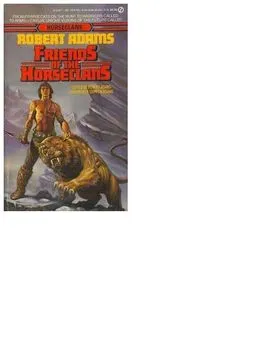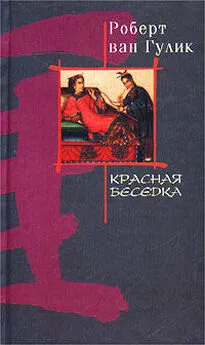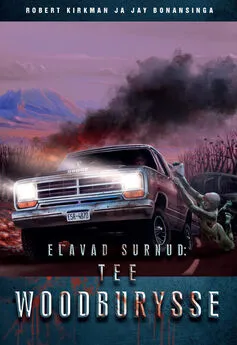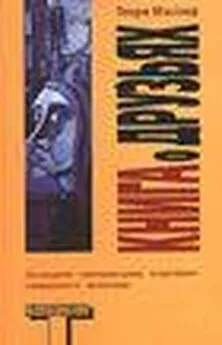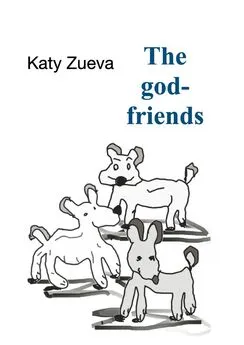Friends (2013) - Adams, Robert
- Название:Adams, Robert
- Автор:
- Жанр:
- Издательство:неизвестно
- Год:2013
- ISBN:нет данных
- Рейтинг:
- Избранное:Добавить в избранное
-
Отзывы:
-
Ваша оценка:
Friends (2013) - Adams, Robert краткое содержание
Adams, Robert - читать онлайн бесплатно полную версию (весь текст целиком)
Интервал:
Закладка:
As he had done ten thousand times in practice, Dunkahn gripped the handle of the pistol smoothly, drawing it from his holster, his thumb pulling the hammer back as he brought it into line.
Trained reflexes took over; left hand clamped around and steadying his right, he brought the pistol up and centered the smaller man’s chests in his sights as he jerked on the trigger, twice.
The sound of the pistol firing was a thunderclap that echoed through his body, but the only effect was twin explosions of bark and splinters from the tree next to the small man, which jerked his arm up and sent his own shot wild.
Out of the corner of his eye, Dunkahn could see Morai, moving with a grace that belied his bulk, his sword drawn and held out in front of him, ducking under the shot of the second man; Milo Morai speared him through the chest and kicked the man from his wet blade as the third dirtman brought his gun in line.
Squeeze, don’t pull, he could hear his father say as he brought the gun up and pulled hard on the trigger, just as the other fired, dumping Morai to the ground with wounded arm and a muffled moan, just as a red flower appeared in the dirtman’s chest, instantly turning into a gout of blood, and Dunkahn followed up with another shot that knocked the dirtman off his feet.
A gun-wielding hand peeked out from behind the tree; Dunkahn took aim and fired at it, once, twice, three times, until the gun clicked empty.
The familiar snick of the hammer on an empty chamber sent his left hand clawing for his belt pouch while his right thumbed the cylinder open and sent the empty brass tumbling.
There is a last time for everything, the last gunfighter thought as his trembling fingers fitted the last round into the chamber. The dirtman walked around from behind the tree, his gun held lightly, smiling.
“No more bullets, eh?” he said, smiling happily as he brought his own gun up. “Well, I’ve only got one more me’self,” he said, bringing up his own weapon and aiming it at the boy’s face.
There is a last time for everything, Dunkahn Lehvee thought, as he brought up his own pistol, took careful aim, and fired, just as thunder tore his own chest apart.
His second-to-last thought was that Milo Morai had not been lying—that for whatever reason, the big man could have brought guns and powder back into the world, but had decided not to; Morai really meant that he didn’t want the world traveling down the same route as it had last time, that guns, powder, and the skills to make them led to far worse than this.
His last tortured thought was to wonder how Milo Morai could possibly be right.
High Road of the Lost Men
by Brad Linaweaver
Brad Linaweaver began his career as a professional writer in the areas of journalism and political opinion, but soon found that he preferred more honest forms of fantasy. In 1983, he was a Nebula finalist for his first work of fiction, “Moon of Ice,” that ran in Amazing Magazine. He is currently expanding the tale into his first novel for Arbor House. He has also appeared in Magic in Ithkar. While awaiting several other anthology appearances, he lives in Georgia with his wife, Cari; stepdaughter, Morgan; and a miniature prairiecat named Puff.
During the time of the cracking of the plateau, there were many who were cast down, and others crushed by a rain of boulders. The fortunate ones escaped the Night of Fire. Among these were Kindred, Confederation nobles, Ehleenee, Free-fighters, prairiecats, Moon Maidens, Soormehlyuhn, and Ahrmehnee, as well as sundry wild animals, birds, and even Ganiks, who lived to see a red sun hanging, as a distant torch, above the dust-shrouded crags of what remained. One survivor was the traveling bard Noplis, who sang of the Day of Doom thereafter.
He had not been the most popular of raconteurs before this time. The night before the disaster, he had been in the camp of Von, a chieftain in the mighty army that was Sir Geros’ to command, where the storyteller was recounting deeds of the High Lord Milo. The largest prairiecat in camp, Flatear—so called because his left ear had been broken since birth—had little patience with the artificial means by which humans entertain themselves. Unable to restrain himself, he mindspoke thus:
“Here is a two-leg who speaks at length regarding matters of which he knows less than a cub. Were it not that our Chief Graypaw and Chief Von saw some use in these word mists, I’d be for sending all tellers of tales to finish their days in the yurt of the old and sick.”
“Hold there, cat-brother,” said Von, quick to mediate, for his reputation as a diplomat was as widely appreciated as his record of fighting prowess. “This bard is welcome with any Kindred clan, and we should show proper manners. Though I’ll admit”— here Von winked at Noplis—“’tis unlikely he’s had firsthand experience with the matters of which he sings.” The poor man could do naught but agree. “Such is my admiration for the High Lord,” said he, “that I sought to give an impression, or overview, of his campaigns, without bogging down in details.”
“True words from the two-leg at last!” was Flatear’s opinion. Noplis knew that cats do not smile, but he could not shake the feeling that this feline’s permanent grin was at his expense.
“Relax, friend bard,” said Von, slapping the slight man on the back with a force that almost sent him reeling into the camp’s fife. “Would seem you’ve made a conquest of your furry critic, all in all.” At this, the company burst into raucous laughter. Noplis was at least a professional. He had the sense to join in.
Von’s concubine scratched behind Flatear’s good ear, and Noplis wondered if he saw jealousy in the face of the large cat’s female lying at the opposite end of the camp, carefully watching all that happened. Perhaps he’d been singing for his supper one night too many, he considered, if such odd fantasies could cross his mind unbidden. Human faces were a better source for potential drama, and he could not help but notice that a dark Moon Maiden watched the fair concubine with undisguised lust. But young Ethera’s loyalty was to Von, and even were this not so, she seemed disinclined to frolic with her own.
“My lords,” announced Noplis, his voice cracking a bit, eyes searching out Flatear, “I’d be happy to tell another tale, or cease withal, if such be the camp’s pleasure.”
“Fair is fair,” shouted Terrell, one of Von’s most trusted lieutenants. “If Flatear be unsatisfied with two-legged amusement, mayhap he’d regale us with a story of his own?”
Halfway through the night, and surfeited on heavy wine, these clansmen were eager to laugh at anything that was at someone else’s expense; the basis of high humor, after all. But Flatear was a wily beast, well versed in the affairs of men, and able to protect his own sensibilities.
The great cat played along: “I’ve seen horses overcome dangers to test the mettle of anything living, and my cat-brothers and I have not spent all our time purring at a warm fire. Any story of the Kindred should be of interest to you, but it’s been my experience that two-legs are only interested in other two-legs.” This inspired a chuckle or two, but the more thoughtful took a moment to reflect on whether or not they had been insulted. Paying no heed to the response, Flatear continued: “I’ll tell of a two-leg deserving a respect from all clan brothers, if Chief Von does not object to being singled out by one who witnessed his bravery.”
“Pay close attention, Noplis,” said Berti, the cook, “and you’ll have something to sing about.”
A flicker of resentment crossed the bard’s face, but then he realized that one of the convenient things about prairiecats— even a mean old sourpuss such as Flatear—was that they do not fret over ownership of an idea or the telling of an event.
Observing that Von had settled down beside Ethera, a flagon of wine in his large-knuckled hand, Flatear went on: “Von and I were hunting meat where pickings were scarce. Winter was prowling near, our breath was on the air, and frost was on the ground. Most game had gone farther south. There was in the region an old grizzly bear who was faring no better in his search for sustenance. Besides coming across the spoor of the grizzly, I’d also found a pile of dried wolf shit. ’Tis not mutton or pork,’ said Von, ‘but a sweet find nonetheless, with a welcome odor indeed,’ and I was certain that a fine two-leg had taken leave of his senses. He proceeded to make a fire—where would a two-leg be without the flame?—and mixing the old dung with herbs he carried in a pouch, he made a stinking mixture which he smeared over his body.”
“Ha, he must have stunk like a Ganik!” said good old Noplis, instantly regretting his ill-chosen words as the deafening silence assailed him. Even Flatear was stunned into speechlessness, a rare occurrence indeed.
But once more was Chief Von’s reputation for diplomacy proven merited. “A fine jest,” said he, “and one you will no doubt add when you make this tale your own. For the nonce, I think we’d appreciate the uninterrupted flow of Flatear’s narrative, eh?”
With long, pink tongue licking his chops, Flatear turned his baleful gaze from his least favorite bard in all the world and resumed mindspeaking: “When his body was covered in the putrid solution, he spread what was left across the frost-covered ground in the direction of the bear’s cave; then we gathered all the leaves that we could find—I still can taste the dry flavor—and Von lay upon the ground. We covered him with the leaves! Then we waited to greet the wind—and it obliged us by blowing in the direction of the cave. 1 held back, out of sight and scent, ready to help when need be.
“That old bear was as hungry for Von’s appetizer as were we for him. With a carelessness borne of hope that he was creeping up on a lone wolf, the bear walked straight toward the hiding place.”
There was a low, appreciative murmuring from those assembled. Most knew that Flatear and Von had had adventures together before they came to prominence with the forces of Sir Gercys. Some had heard this story before, but all were entranced at the description of their chief’s daring.
“One wrong step from that big four-paws and this clan would never have known the guidance of a sensible leader, brothers. Von had spread his wolf scent with care, so as to guide the bear’s movements. When the bulk of his adversary was directly over the trap, he struck with that very knife you see at his side now. 1 hurried to join the kill.” As Flatear was the swiftest prairiecat of Von’s clan, none doubted the speed with which this was accomplished. “I needn’t have bothered. With one straight thrust of that long knife, he pierced the grizzly’s heart, and his one danger remaining was to roll clear before two tons of bear flesh fell into a pool of its own hot blood! That’s an act of bravery you don’t see every day, wandering bard. If you sing of that, see that you tell it truly.” Noplis had nothing else to say that night but for repeated thanks at the generous offerings of food he received despite his less than successful showing. At first, he felt some degree of resentment at the brusque prairiecat, but as he thought upon it he came to agree that his critic had a point. There was no substitute for the proximity of a subject. It wasn’t that the bard had not faced danger before-—almost impossible not to do in these perilous times—but that when danger loomed near, it was his habit to find matters demanding his immediate attention at a further remove. So accomplished was he at running that it had once been suggested that he might be of immeasurable value as a messenger, but when considering the brief life span offered by that profession, he concluded that he should apply his abilities to the more demanding rigors of the storyteller’s art.
Читать дальшеИнтервал:
Закладка:
